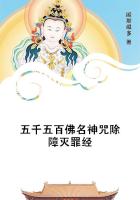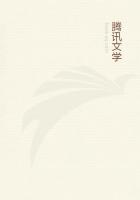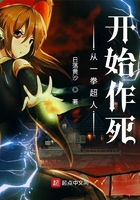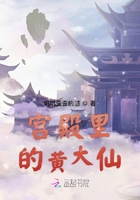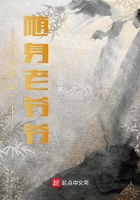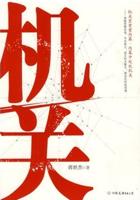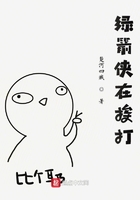Jasmine had no time to answer, but went home full of anxious and disturbed thoughts, which were destined to take a more tragic turn than she had ever anticipated even in her most gloomy moments. The same cruel fate had also decreed that Wei's proposal was to be suspended, like Buddha, between heaven and earth. The blow fell upon him when he was attiring himself in the garments of his new degree, in preparation for his visit. He was in the act of tying his sash and appending it to his purse and trinkets, when Jasmine burst into the young men's study, looking deadly pale and bearing traces of acute mental distress on her usually bright and joyous countenance.
"What is the matter?" cried Tu, with almost as much agitation as was shown by Jasmine. "Tell me what has happened."
"Oh, my father, my poor father!" sobbed Jasmine.
"What is the matter with your father? He is not dead, is he?" cried the young men in one breath.
"No, it is not so bad as that," said Jasmine, "but a great and bitter misfortune has come upon us. As you know, some time ago my father had a quarrel with the military intendant, and that horrid man has, out of spite, brought charges against him for which he was carried off this morning to prison."
The statement of her misery and the shame involved in it completely unnerved poor Jasmine, who, true to her inner ***, burst into tears and rocked herself to and fro in her grief. Tu and Wei, on their knees before her, tried to pour in words of consolation. With a lack of reason which might be excused under the circumstances, they vowed that her father was innocent before they knew the nature of the charges against him, and they pledged themselves to rest neither day nor night until they had rescued him from his difficulty. When, under the influence of their genuine sympathy, Jasmine recovered some composure, Tu begged her to tell him of what her father was accused.
"The villain," said Jasmine, through her tears, "has dared to say that my father has made use of government taxes, has taken bribes for recommending men for promotion, has appropriated the soldiers' ration- money, and has been in league with highwaymen."
"Is it possible?" said Tu, who was rather staggered by this long catalogue of crimes. "I should not have believed that any one could have ventured to have charged your honoured father with such things, least of all the intendant, who is notoriously possessed of an itching palm. But I tell you what we can do at once. Wei and I, being M.A.'s, have a right to call on the prefect, and it will be a real pleasure to us to exercise our new privilege for the first time in your service.
We will urge him to inquire into the matter, and I cannot doubt that he will at once quash the proceedings."
Unhappily, Tu's hopes were not realised. The prefect was very civil, but pointed out that, since a higher court had ordered the arrest of the colonel, he was powerless to interfere in the matter. Many were the consultations held by the three friends, and much personal relief Jasmine got from the support and sympathy of the young men. One hope yet remained to her: Tu and Wei were about to go to Peking for their doctor's degrees, and if they passed they might be able to bring such influence to bear as would secure the release of her father.
"Let not the 'young noble' distress himself overmuch," said Wei to her, with some importance. "This affair will be engraven on our hearts and minds, and if we take our degrees we will use our utmost exertions to wipe away the injustice which has been done your father."
"Unhappily," said the more practical Tu, "it is too plain that the examining magistrates are all in league to ruin him. But let our elder brother remain quietly at home, doing all he can to collect evidence in the colonel's favour, while we will do our best at the capital. If things turn out well with us there, our elder brother had better follow at once to assist us with his advice."
Before the friends parted, Wei, whose own affairs were always his first consideration, took an opportunity of whispering to Jasmine, "Don't forget your honoured sister's promise, I beseech you. Whether we succeed or not, I shall ask for her in marriage on my return."
"Under present circumstances, we must no longer consider the engagement," said Jasmine, shocked at his introducing the subject at such a moment," and the best thing that you can do is to forget all about it."
The moment for the departure of the young men had come, and they had no time to say more. With bitter tears, the two youths took leave of the weeping Jasmine, who, as their carts disappeared in the distance, felt for the first time what it was to be alone in misery. She saw little of her stepmother in those days. That poor lady made herself so ill with unrestrained grief that she was quite incapable of rendering either help or advice. Fortunately the officials showed no disposition to proceed with the indictment, and by the judicious use of the money at her command Jasmine induced the prison authorities to make her father's confinement as little irksome as possible. She was allowed to see him at almost any time, and on one occasion, when he was enjoying her presence as in his prosperous days he had never expected to do, he remarked:
"Since the officials are not proceeding with the business, I think my best plan will be to send a petition to Peking asking the Board of War to acquit me. But my difficulty is that I have no one whom I can send to look after the business."
"Let /me/ go," said Jasmine. "When Tu and Wei were leaving, they begged me to follow them to consult as to the best means of helping you, and with them to depend on I have nothing to fear."
"I quite believe that you are as capable of managing the matter as anybody," said her father, admiringly; "but Peking is a long way off, and I cannot bear to think of the things which might happen to you on the road."

